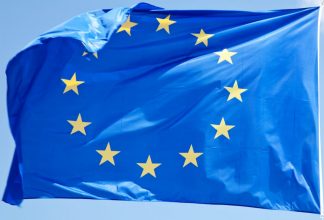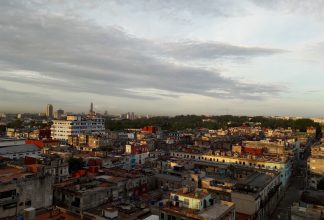Cuban Civil Society Needs Assistance
Letter #28 by Walkis González Valdés.
In July 2019, Civil Rights Defenders invited Cuban human rights defenders and civil society organisations to contribute with texts on how the European Union should work towards Cuba. This letter is written by Walkis González Valdés.
Cuban Civil Society Needs Assistance
Currently, the social and economic problems in Cuba are escalating; the Cuban population continues to be destined to suffer the profound impacts of rigid politics based on an historic conflict between the island and the United States, which harms the island population the most.
Cuba is limited to not being able to comply with the payment terms agreed upon on the international stage; there is an acute fuel crisis which is directly reflected in transportation and in food supplies, in production, distribution, and even manufacture for family consumption. To name just one example of the aforementioned, the sale of liquefied gas, a product used for home cooking and which could be freely acquired until this past July, has been regulated within 60 days, which has resulted in a very negative impact on the population. It is important to emphasise that the numerous reorganisations that are carried out within the country without timely feasibility studies do not permit any economic processes that are beneficial for the population to be stabilised.
Along these lines, and with regard to everything related to the contribution made toward the development of social projects for the purpose of supporting vulnerable groups in Cuban society, as well as towards cultural projects on the part of the European Union, it is good for it to know, that we need support beyond that provided by state institutions or local authorities, we need direct support for civil society organisations that contribute to the Cuban people’s socioeconomic development using positive approaches and novel ideas without increasing food prices, which is something that has been happening in the wake of falling investments in state infrastructures.
We need to promote spaces for the exchange of knowledge, to promote evolution in Cuba’s social thinking and transformations from the inside out, which requires cognitive, financial, and communications support, the harnessing and proper use of technology, and the generation of safety protocols, all of which can be achieved through greater receptiveness in exchanges with the UE’s Member States. Knowing and sharing successful experiences with relevant organisations and labour and union rights promoters from various regions in the UE with a good work trajectory in the fields of human rights and democracy is all very important to us, as well as participating in training courses on democratic processes to identify, educate, and provide follow-up on social leaders, emphasising the non-state sector in Cuba, as well as the union leaders censured by the administrative and directive apparatus of Cuban state companies.
It is very important to support the request that the Cuban government acknowledge those organisations that promote social responsibility so that truth and transparency can become vehicles to carry the desires of what Cuban society really wants, which is a far cry from lies, promises, and stagnation in the socioeconomic order and in matters of politics. It involves working in greater depth with people, providing truthful information, ensuring and establishing efficient channels of communication to elevate the release and sharing of information, according to our purposes and, for that reason, we need technological support, to increase citizen participation and promote democratic change. We also wish to examine new and renewed relationships with organisations of an international nature to work on volunteer education, with a greater level of exchange with worldwide volunteers, particularly in Europe, and through joint encounters and assessments.
On the other hand, it is very appropriate to state what we can do from the Cuban non-state sector, from self-employment and from civil society through capacity development, offering tools and undertaking research studies that allow us to promote labour rights in this important sector, which is already representative in society and is increasingly influential in the Cuban economy. It should be noted that self-employment does not have enough support to provide services when the use of raw materials or supplies to provide these services with a higher level of quality is not ensured, and that even so it has greater requirements and quality compared to those required by state mechanisms.
It is essential that we develop based on each person’s thinking, from the contribution of creativity, that provides the truth about who we are, what we really want, and where we want to go, based on principles of participative democracy, generating knowledge to progress toward a model of competitive and developmental employment, based on technical-professional qualifications that seek to elevate quality of life at work, social justice, and respect for human dignity, in a setting of sustainable growth. The European Union has numerous experiences that it can share and promote on the island, such as the events that are promoted and carried out at embassies in the country, but with concrete action and follow-up plans with Cuban civil society organisations and without mediating authorities.
We contribute to the efficiency of the work done in the non-state sector and the use of available resources, as well as the utilisation of natural setting spaces, on the basis of respect, when a private business is established, but especially taking into account the care and maintenance of natural preservation areas, of cultural patrimony in cities, towns, and rural communities, and promoting care for the environment in order to ensure development sustainability and not affect future generations’ capacity to fulfil their own needs. These are things that we do and we could continue to examine these matters in greater depth if we were recognised as organisations driving social change.
We develop social liability projects, primarily in work involving youth and working women, emphasising the importance of youth to be involved as agents of change and transformation in their society.
We contribute to the study of changes and trends in self-employment, as well as the development of capacities and skills, the strengthening of union organisations, labour and organisational renewal, and the strengthening of general workers, as a consequence of the Cuban economy’s change and transformation process and that of the productive forces, allowing for the construction of democratic labour relations, and providing management and planning tools for greater possibilities of success when organising and defending the labour rights of the country’s worker movements. This process allows for representational capacity to be improved, for services to be improved, for the number of volunteers to be increased, and for the presence of women in the labour structures to be improved.
Walkis González Valdés
Walkis González Valdés
Walkis González Valdés has a degree in sociocultural studies, with and emphasis in cultural anthropology and Cuban religion. He is a professor of scientific research methodology and Cuban music history. He has a postgraduate degree in linguistic anthropology, religious anthropology, and suburban anthropology. He is a public relations specialist for events and cultural promotion, with a business in the field of gastronomic services. Currently, he is the Director of PROPIO organisation and the Assistant Executive Director of DemoCub.

